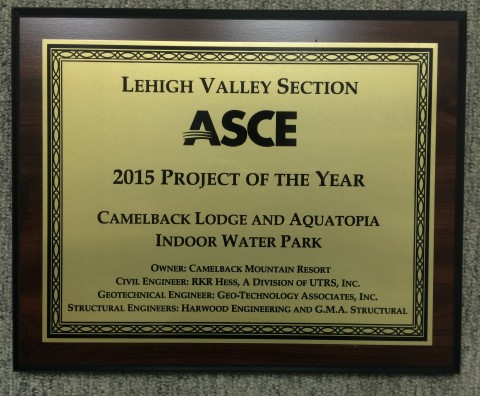
A possible 4,800 feet of natural gas pipeline from Delmont, Pa., to Lambertville, N.J., could be completed as early as 2018, according to the Energy Information Administration. The new pipeline would add to the area’s existing 6,800 feet of pipeline completed prior to 2014. But the benefits and risks of natural gas pipelines are still being weighed against each other as advocates and opponents of the project battle it out in courts of law and the court of public opinion.
In 2005, horizontal drilling and hydraulic fracturing methods made it possible to capture natural gas from shale. Less than a decade later, in 2014 Pennsylvania became the second-largest natural gas supplier in the country according to the Pennsylvania Department of Environmental Protection (DEP).
An analysis by Argonne National Laboratory in 2010 indicated that natural gas is the “cleanest burning commercially available alternative fuel,” and the potential impact of a natural gas market is fueled by regional large companies with reliable energy needs. Today, the rate of drilling has surpassed the infrastructure in place to transport natural gas to the market. The DEP estimates that approximately 30 percent of the wells drilled for natural gas have no means for the gas to reach consumers.
In Pennsylvania, the proposed 118-mile PennEast Pipeline would transport that natural gas and serve two states. A study released by the Greater Philadelphia Chamber of Commerce noted that increased demand in the Philadelphia region, combined with an excess natural gas supply, presents the opportunity for Pennsylvania to become an important East Coast energy hub. The study cited the potential impact the Marcellus Shale industry could have on economic revitalization in the region.
Currently, no single federal or state agency has oversight of pipeline infrastructure. In 2011, the Public Utility Commission was given the legal authority to conduct safety inspections, but only for pipelines in populated areas (i.e., Class 2, 3, and 4 pipelines). In 2015, Pennsylvania Governor Tom Wolf created a Pipeline Infrastructure Task Force that held several public meetings. Recommendations from the task force included creating long-term operations and maintenance plans, reducing environmental impact in construction phases, and creating an atmosphere that maximizes the efficiency of permits and reviews. A final report, filed in February by the Pipeline Infrastructure Taskforce, recommended that the next steps include assessing which regulations recommended in the report fall under the state’s jurisdiction.
Safety concerns have become a reality. In May 2016, a natural gas explosion severely burned one person in Salem Township, Pa., and blew a hole 1,500-square-feet in diameter 12 feet deep into the ground. The resulting fire burned approximately 40 acres, according to NPR’s State Impact. The Pipeline Hazardous Materials Safety Association issued a corrective order following the incident, citing possible corrosion on the pipeline, which “indicates a possible flaw in the coating material.” Spectra Energy, the company that owns the pipeline, stated that a 2012 inspection revealed no such flaws.
In response to growing safety and land-use concerns, the Delaware River Basin Commission (DRBC) is conducting multiple public hearings in Pennsylvania and New Jersey during its technical review of the PennEast plan. The DRBC is a regional body with the goal to oversee management of the Delaware River system across state boundaries. No meetings are scheduled during 2016, but future meeting schedules will be available on the DRBC website.
New regulations and long-term plans are still under review with both regulatory bodies and legislators. In June, the Pennsylvania House Environmental Resources and Energy Committee approved an amendment to exclude conventional drilling companies from proposed regulations for the Marcellus Shale industry, citing differences between how the two methods of extraction operate. A spokesman for Governor Wolf declined to indicate whether or not the Governor approved of the amendment, and instead expressed the intention to continue working with the legislature on regulations for the oil and gas industry.



